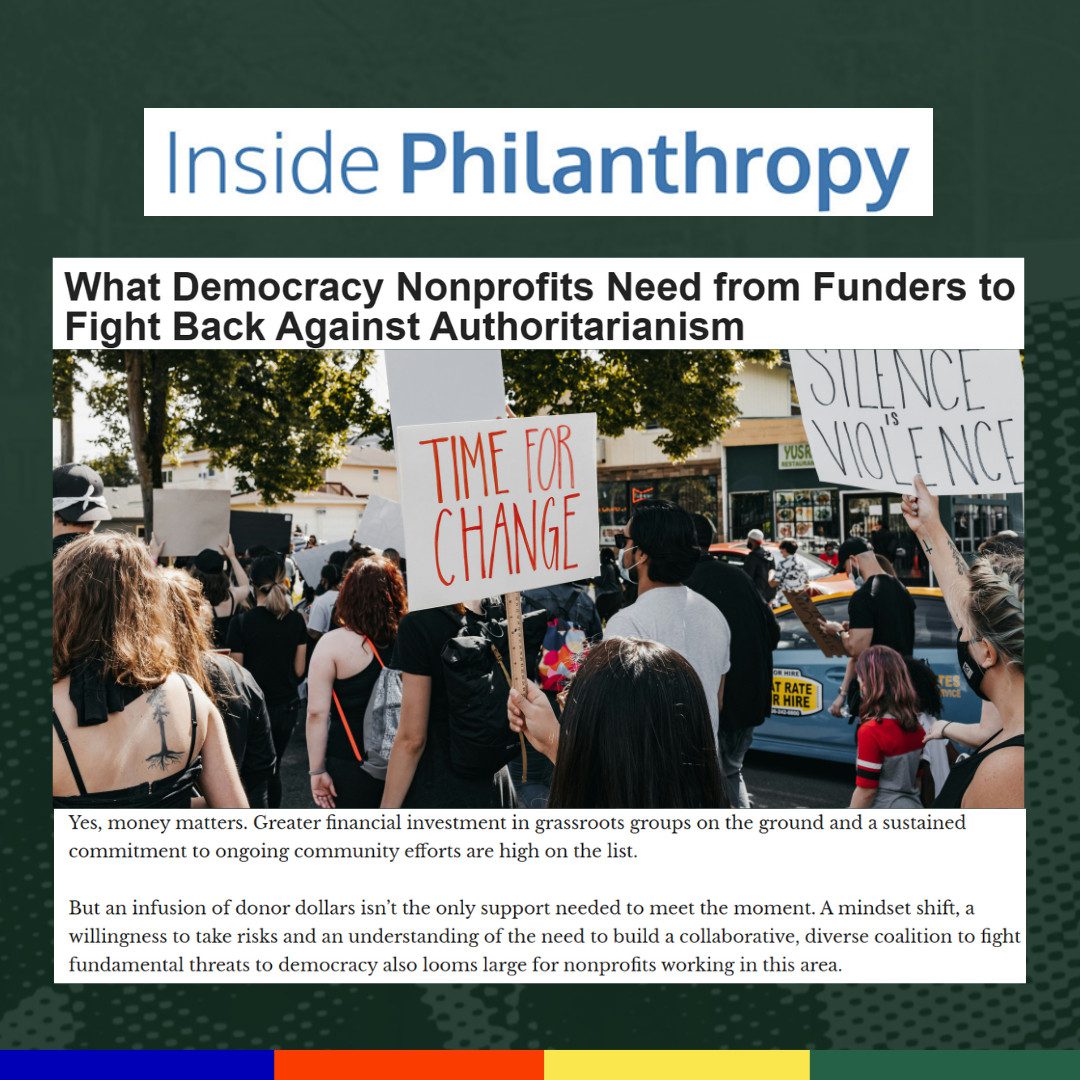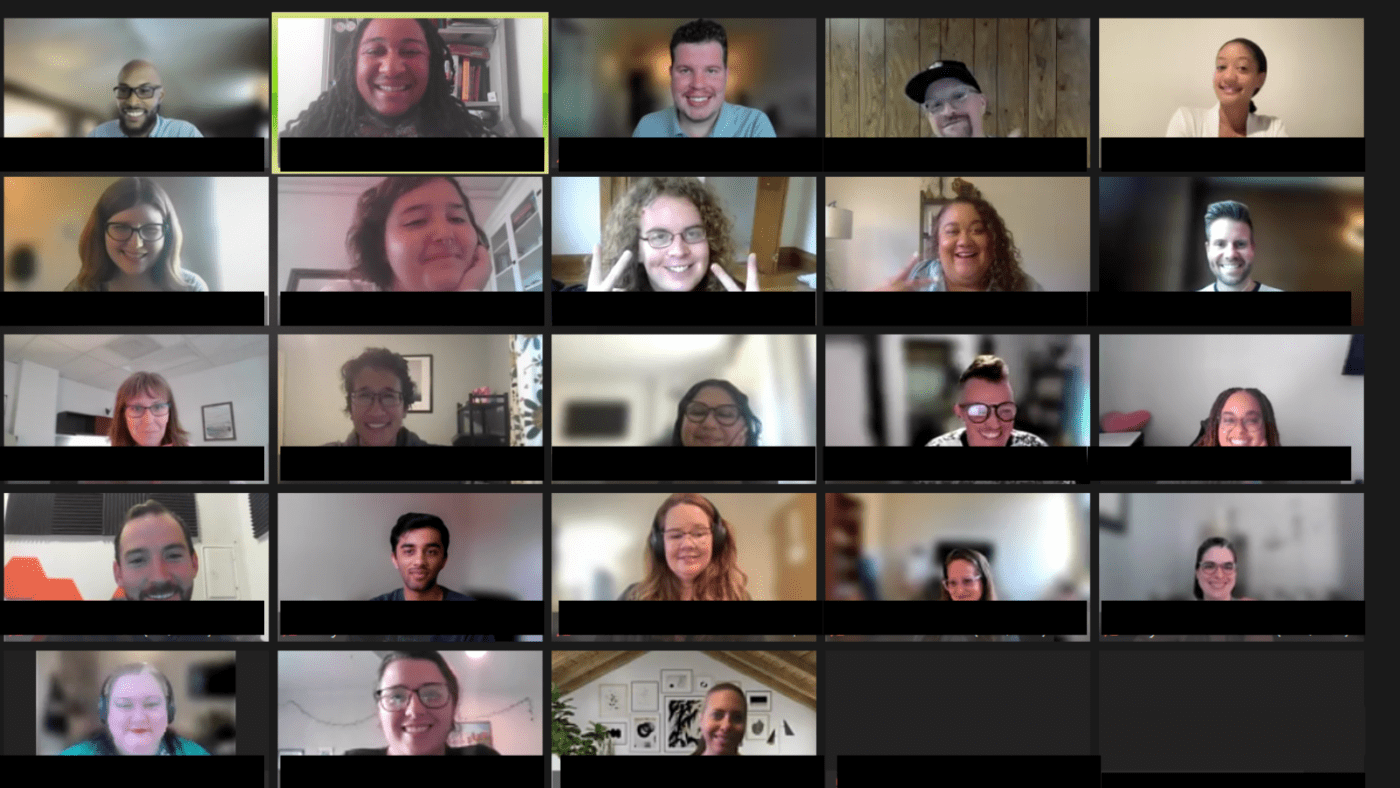If you’re a part of a collective or organization that mobilizes and organizes communities, you likely know that text messaging is one of the fastest, safest, and most effective ways to reach people.
Mobile carriers have recently instated rules that impact how we’re able to text with our communities. The recently instated A2P 10DLC or Application-2-Person 10 Digit Long Code rules have shifted how organizations build and run their text message campaigns.
State Voices is here to provide you with our learned lessons and most effective practices for delivering your messages. Over the next few weeks, we’ll release regular blog posts about effectively delivering text messages and SMS campaigns.
Earlier this year, we shared a video about how to ensure your organization is sending “wanted messages”—a message that the recipient wants to receive and can easily opt-out of as soon as they no longer want it. In this new educational series on text messages, we’ll share more technical information about how to achieve this.
How has 10DLC changed the landscape of texting?
The 10DLC regulations launched in November 2021 by T-Mobile and AT&T introduced a new process to regulate the flow of SMS text traffic from businesses, organizations, and institutions that use application-to-person (A2P) texting.
In theory, these regulations are intended to mitigate unwanted text messages; in practice, it has threatened to severely limit our communities’ access to critical civic and public health information over text. Since 2021, State Voices, The Movement Cooperative, and MoveOn convened the Coalition for Open Messaging to advise our community on navigating A2P 10DLC policies. Since then, we’ve built a wanted message framework for our community to assist with navigating their text programs across these new policies.
The introduction and regulation of 10DLC require organizations to register their brand, campaign type, and use case before communicating using text messaging without penalty. In this process, organizations are accessed a Trust Score, which is derived from an algorithm by The Campaign Registry that sets the speed and volume of texts allowed. For 501(c)3 organizations, this landscape can appear restrictive and inconsistent as these organizations currently have low Trust Scores, ultimately throttling their ability to take advantage of this expanded capacity.
The new 10DLC rules impacts service providers like State Voices (Dispatch) as well as message aggregators like Twilio and Bandwidth. 10DLC calls for administrators to closely monitor spam and unwanted traffic over America’s wireless infrastructure. While the new 10DLC rules are not ideal, as trusted messengers and community organizers, our movement organizations can use State Voices’ movement technology knowing it meets or exceeds industry requirements while maintaining 501(c)3 compliance with discounted pricing options. State Voices is committed to providing next-generation technology to our network for the public good; so the broader progressive community can continue to serve their communities where they are.
What is The Campaign Registry?
The Campaign Registry is a third-party corporation that describes itself as the “central hub for registering A2P or application-to-person 10DLC messaging campaigns.” In this role, TCR acts as a regulatory mediator between US mobile operators like T-Mobile and AT&T and businesses and organizations that utilize text messaging to communicate with their audiences. Nonprofits, political campaigns, public figures/influencers, and service providers that use A2P10DLC message campaigns are impacted by TCR’s registration system and US mobile carriers’ 10DLC regulations.
Mobile carriers are not motivated to institute regulations to protect the exchange of wanted text messages between communities via person-to-person texting but to protect their reputations and profits. Corporate interests and closed-door regulators should not limit the ability to exchange information with communities via person-to-person texting. The Coalition for Open Messaging calls on the wireless carrier industry and The Federal Communications Commission (FCC) to engage in transparent and collective processes with the civic engagement community to create policies that provide equal access for all organizations to wireless infrastructure, protect consumers and organizations and reduces spam and fraud in text messaging.
How to stay connected.
Together, we can ensure communities continue to receive the information and resources they need by sharing our learned lessons and joining the call to carriers and the FCC for a transparent and democratic process.
How has 10DLC registration and regulation impacted your SMS campaigns?
Share your learned lessons and best practices with us on Twitter and join our digital communictators list to stay up to date with best practices and innovations for your texting programs in 2022.
Categories: Civic Tech and Innovation



